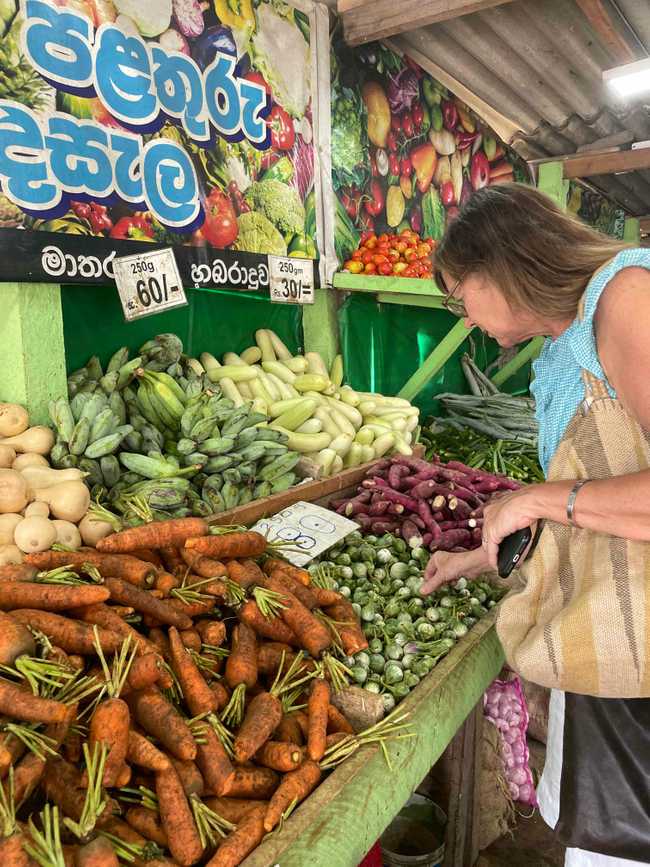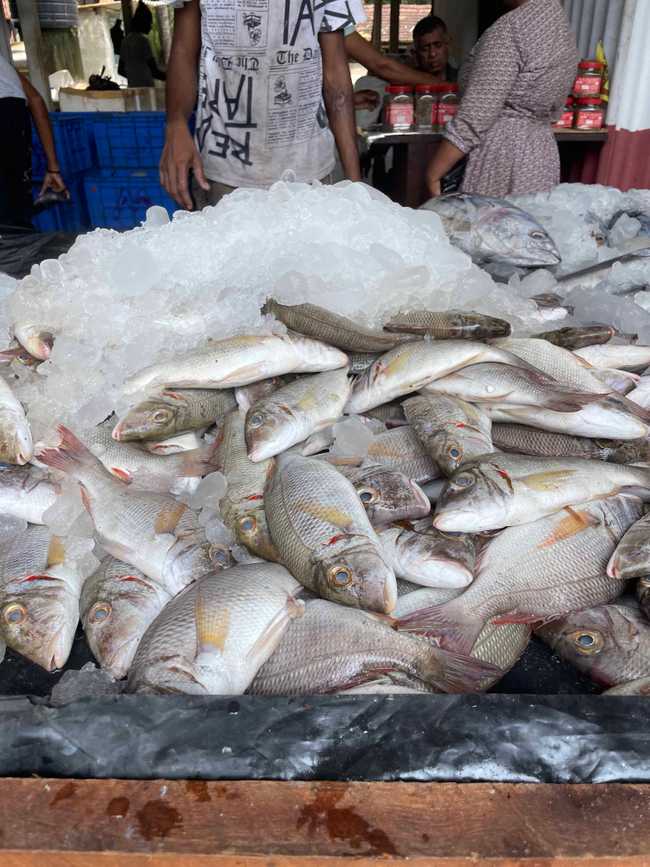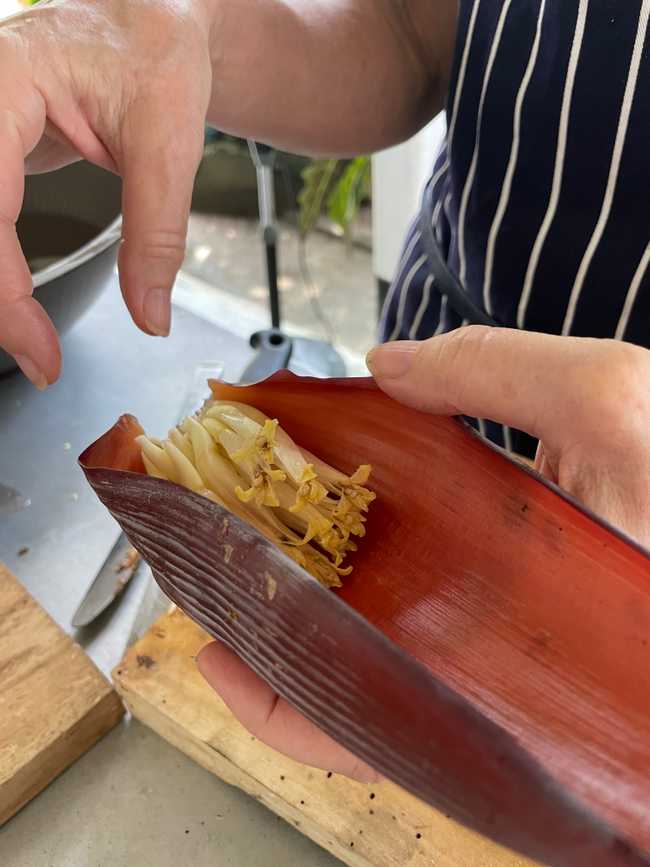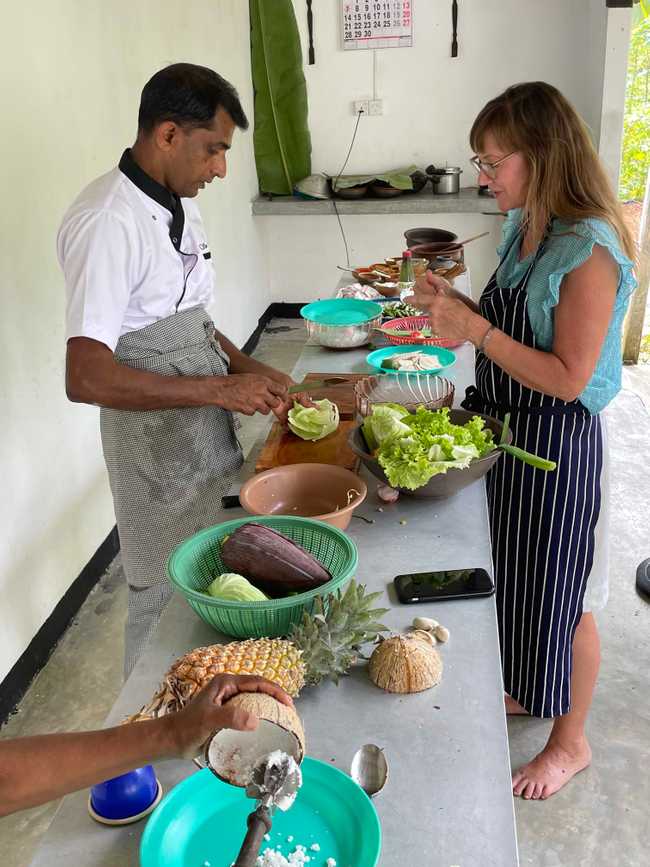A Curious Foodie in Sri Lanka
A Curious Foodie in Sri Lanka
As a curious foodie, travel is an opportunity for me to discover new tastes and dishes, and Sri Lanka has always been high on my list of countries to visit. Much of the joy I get from these trips is the expectation of experiencing new flavours. To prepare my palate before departure, I research the cuisine, the culinary highlights and the food champions. If I am not familiar with the country, I try to find a restaurant in London that can provide me with some examples of the national dishes (I did this for Mauritius, Cambodia and my original trip to Sri Lanka). I like to get to know some of what I am going to encounter, as it fuels the taste anticipation!
Part of my discovery of a new culture is through its landscapes, architecture and customs. But much can also be gained from an understanding of the food on offer and the evolution of the cuisine. Eating can often be a communal affair so not only are you able to gain an insight into what is available but also the culture of people who produce it. Locals are usually proud of what they have prepared and are happy to tell you more. This I found to be particularly true of Sri Lanka.
Sri Lanka has a lot to offer in terms of eating opportunities. As a pescatarian, there are certain more remote parts of the world where I struggle with variety, but happily, Asia invariably offers many options for the non-meat eater. Sri Lanka did not disappoint, and I was able to indulge myself in visits to the local markets and shops - a great way to immerse myself in unusual and previously unknown ingredients - and then ask the chef at Kalukanda House to show me how to prepare our purchases. The result was a fantastic day of shopping, cooking and then eating; everything fresh, vividly coloured and zinging with flavour, with not an ultra-processed food in sight.
As a person who lives to eat, one of my concerns is the loss of diversity of indigenous plant varieties in favour of mass-produced, genetically altered plant breeds, which generally require more water, fertiliser and pesticides than the hardier versions that were grown historically. This is a problem worldwide, not just in Sri Lanka and other countries suffering from food poverty. The loss is well documented by such groups as the Slow Food Movement, a grassroots organisation that was founded in Italy in 1989 to prevent the disappearance of local food cultures and traditions and has now expanded worldwide. Journalists such as Dan Salidino and the writer Michael Pollen have written at length about this worrying issue. So when I visit a country, I try to avoid a sanitised version of its cuisine: I want to take as deep a dive as possible into the heritage foods of the region and support the farmers who are attempting to restore some of these older varieties.
My lasting memory will be of sitting down to eat a feast in the home of the chef from Kalukanda House with his delightful family. It was a meal to remember, freshly cooked by all of us, with inspiring local ingredients bought that morning in the market - a truly Sri Lankan experience.
About Harriet Forde
Past President of the British Institite of Interior Design 2019/20, Harriet is an International Interior Designer who lives in London with her family. She came to join the Journey To The Heart Retreat at Kalukanda House in December 2022 and stayed on for longer to discover more about the island.
Recent Posts
- Irstel Jansen, Passionate Social Entrepreneur April 2024
- HERA Project X Making an ImpactFebruary 2024
- Ashley Davis, Uncharted HostFebruary 2024
- Goddess Energy by Karen LaneNovember 2023
- Tooting Mama's Devilled Prawns RecipeOctober 2023
- Tooting Mama London Food BloggerOctober 2023
- Melisa Fernando Wildlife Photographer September 2023
- Sara Alke Jewellery Designer September 2023
- Define The DIVINESeptember 2023
- Your Voice Can Change Your LifeAugust 2023
- Self Love Self BeliefJuly 2023
- Mindset Your StoryJuly 2023
- Movement is IgnitionJuly 2023
- Aadhitya Jayaseelan Artist Founder of KayamaiJuly 2023
- Clara Kraft 'Bawa's Garden'July 2023
- Kanchana Gamage Pilot and Founder of Aviatrix ProjectJune 2023
- Indy Vidyalankara Music PR ConsultantJune 2023
- Yoga Poses to unleash your VoiceJune 2023
- Why Garden Office Spaces WorkJune 2023
- Recognise Your Imprint Voices, Find YoursJune 2023
- Inner Voice & Self Belief, change the loopJune 2023
- A Curious Foodie in Sri LankaJune 2023
- Your Voice A Healing InstrumentJune 2023
- Rachel Chanmugum, Sound HealerJune 2023
- Find Your Voice in a noisy worldJune 2023
- Finding your truth and pleasure states through voice June 2023
- Dee Gibson Founder of Kalukanda HouseJune 2023
- Holly Clark, CoachJune 2023
- Karen Lane, Yoga TeacherJune 2023
- Elizabeth Healey, NeuroscientistJune 2023
- Kind Traveller, Positive Impact TourismOctober 2022
- Every Stay Gives BackOctober 2022
- Sala Salwatura, Yoga TeacherOctober 2022
- Piyumi's StoryFebruary 2022
- Honeymoon Escape after CovidDecember 2021
- Sam Clark, A Passion for TravelFebruary 2021
- Kalukanda House : Emotional Design, definedSeptember 2020
- SeaSisters Empowering Women through surfingSeptember 2020
- Our Charity Partner - TFTJune 2020
- Marie Claire at Kalukanda HouseJune 2020
- Kalukanda House Sound Healing Meditation May 2020
- An Audience with Ashok FerryMay 2020
- A very special Yoga RetreatMarch 2019
- Guest Blog by Dan Sefton, Writer (Good Karma Hospital)January 2019
- Kalukanda House Aubergine CurryJune 2018
- Building Kalukanda House the StoryJune 2018



